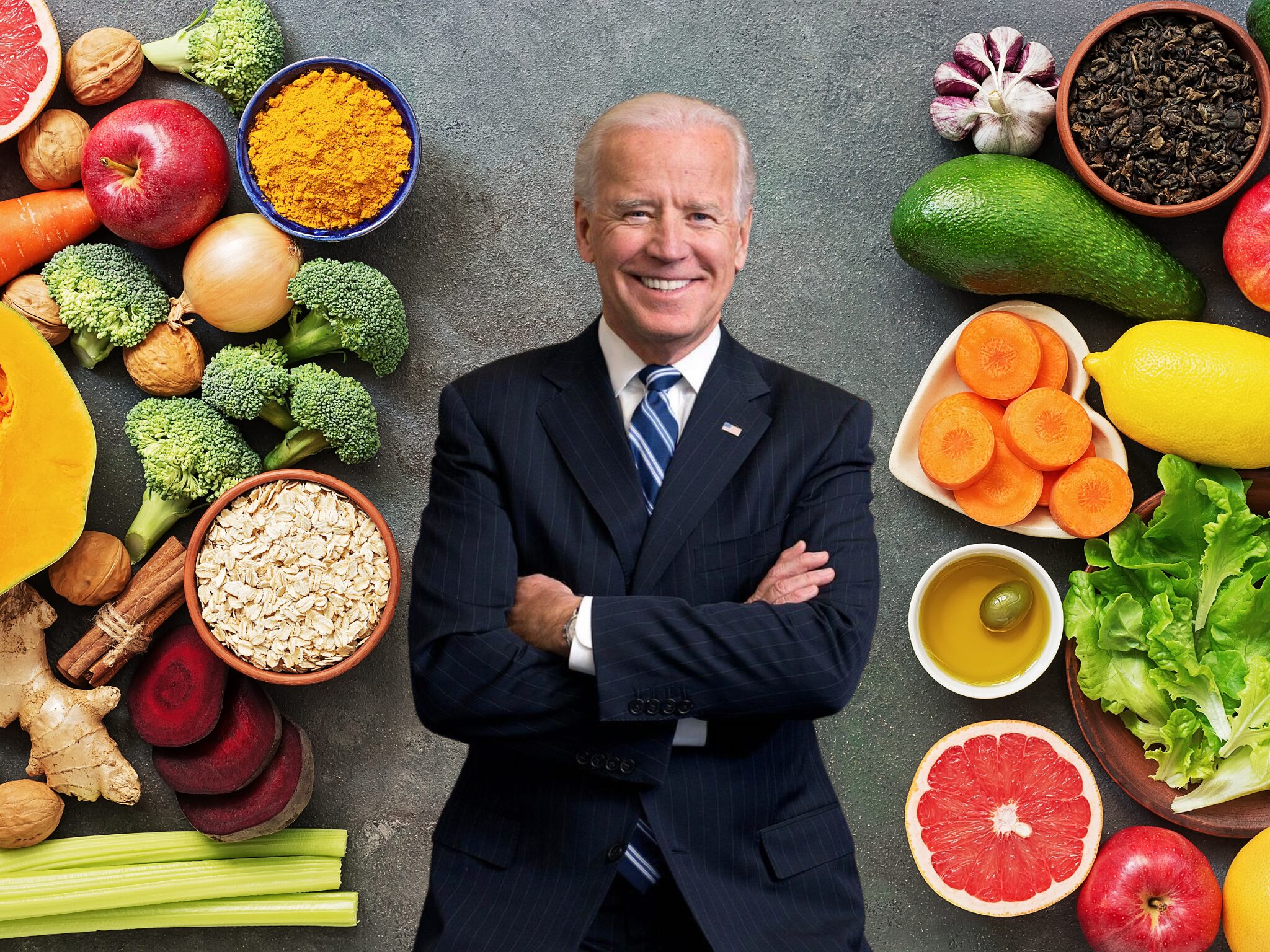In An Open Letter to Biden, the US Congress is Asking for More Plant-Based Food
5 Mins Read
Highlighting the climate and health benefits of vegan diets, 55 Congressional leaders in the US have penned an open letter to president Joe Biden, urging him to increase plant-based food options across all federal facilities nationwide.
As states continue their battle with the livestock sector’s newest ‘enemy’, cultivated meat, federal policymakers are championing that industry’s older rival, calling on the US government to increase its adoption of plant-based food.
In an open letter to Biden last month, 55 Congressional leaders asked the president to expand vegan offerings in all federal facilities nationwide, using scientific evidence to describe the environmental and health virtues of plant-based diets, and noting their importance in meeting the dietary and cultural demands of workplace meals.
“Our federal government spends billions of dollars on food procurement each year and can play an important role in empowering and providing consumers with healthy food offerings,” the letter reads. “Today, we write to encourage your administration to work with federal agencies to make a plant-based option available everywhere our federal government serves a meal – from museums to national parks, and federal agency cafeterias to military bases.”
Congress highlights studies showing vegan diets’ benefits

The letter was led by Democrat Jamie Raskin, and facilitated by climate activism organisation the Environmental Working Group. It lays out findings from a host of studies outlining the impact of plant-based diets on human and planetary health, and is co-signed by policymakers like Alexandria Ocasio-Cortez, Raja Krishnamoorthi, Adam Schiff, Shri Thanedar, Julia Brownley and Barbara Lee, among others.
“A high-quality plant-based diet, rich in essential minerals, vitamins, healthy fats, and fibre, can bolster our immune systems, lower inflammation, and mitigate diet-related diseases including heart disease, diabetes, cancer, and chronic diseases,” the letter reads, adding that it can also help reduce cholesterol, inflammation, and high blood pressure.
It mentions the Stanford University trial led by Christopher Gardner, which compared the effects of a vegan diet on identical twins, and found that a healthy plant-based diet can lower LDL cholesterol, insulin and body weight – all factors associated with better cardiovascular health. The study was covered in the four-part Netflix documentary You Are What You Eat, released in January.
The letter goes on to spotlight a landmark study published in the Nature journal last year, which showed that vegan diets can reduce emissions, water pollution and land use by 75% compared to a meat-heavy diet. “In comparison, livestock farming is associated with larger environmental impacts, contributing to significant levels of US greenhouse gas emissions from land use, water use and nitrous oxide emissions from livestock waste and heavy fertiliser usage,” it states.
“Offering a plant-based meal option at federal facilities can help reduce our federal government’s carbon footprint while also promoting our people’s health.”
However, one of the biggest barriers to such policies is a lack of consumer education about these effects, with 74% of Americans thinking meat doesn’t have any impact on climate change, and the number of vegans hitting a 10-year-low last year.
Call for plant-based food comes during ‘climate election’ year

The open letter namechecks the White House’s National Strategy on Hunger, Nutrition and Health, which aims to foster “an environment that makes it easier for Americans to choose healthy food options”, and mentions a goal to “increase the availability of healthy beverage choices as well as plant-based options” in federal facilities.
“While the Food Service Guidelines for Federal Facilities recommends that federal facilities provide ‘protein foods from plants’, a vegetarian or plant-based option is still not commonly offered at federal food facilities,” the letter argues. “About one in four American workers eat and drink food obtained from their workplaces, and this presents an exciting opportunity to provide federal employees and visitors with nutritious plant-based meal options.”
It further cites a Harvard University study revealing that “making more nutritious options available to federal workers and visitors will improve people’s health and lead to overall cost savings” for the government. The Biden administration has made investments in policies to end hunger, promote nutrition and reduce diet-related diseases by 2030. Commending this, the letter adds: “Our federal government can lead by example through its own food practices.”
In a blog post, the US Plant Based Foods Association (PBFA) wrote: “Consumers want and willingly choose to put plant-based food options on their plates when available.” A 2023 multi-university pilot revealed that when presented with vegan meals as the default option (with meat-based options available on request), the demand for plant-based dishes can increase by up to 82%, while emissions can be lowered by 24%.
The PBFA’s own research shows that 43% of consumers think the availability of plant-based options improves the restaurant experience. “We hope to see these changes take hold within our federal institutions, and by offering a greater variety of plant-based options, prioritising thoughtful menu labelling, and educating the American public – not just those that identify as vegetarian or plant-based – we can create well-rounded dining experiences that appeal to all patrons, meet the demands of our planet, and promote the health and sustainability goals of our country,” the association noted.
The letter comes during what is being termed the year of climate elections, and at a time when Biden is being criticised for weakened climate policies. At the time of writing, the incumbent president is tied in the polls with his predecessor and challenger Donald Trump, whose potential re-election could bring about a regression of global climate efforts, according to former UN climate chief Patricia Espinosa, who says a White House return for the Republican “would have very strong consequences if we see a regression regarding climate policies in the US”.
An increasing number of local governments are embracing plant-based foods – including Los Angeles County, New York City, Baltimore and Texas – the federal administration would do well to follow in their lead ahead of November 5.



